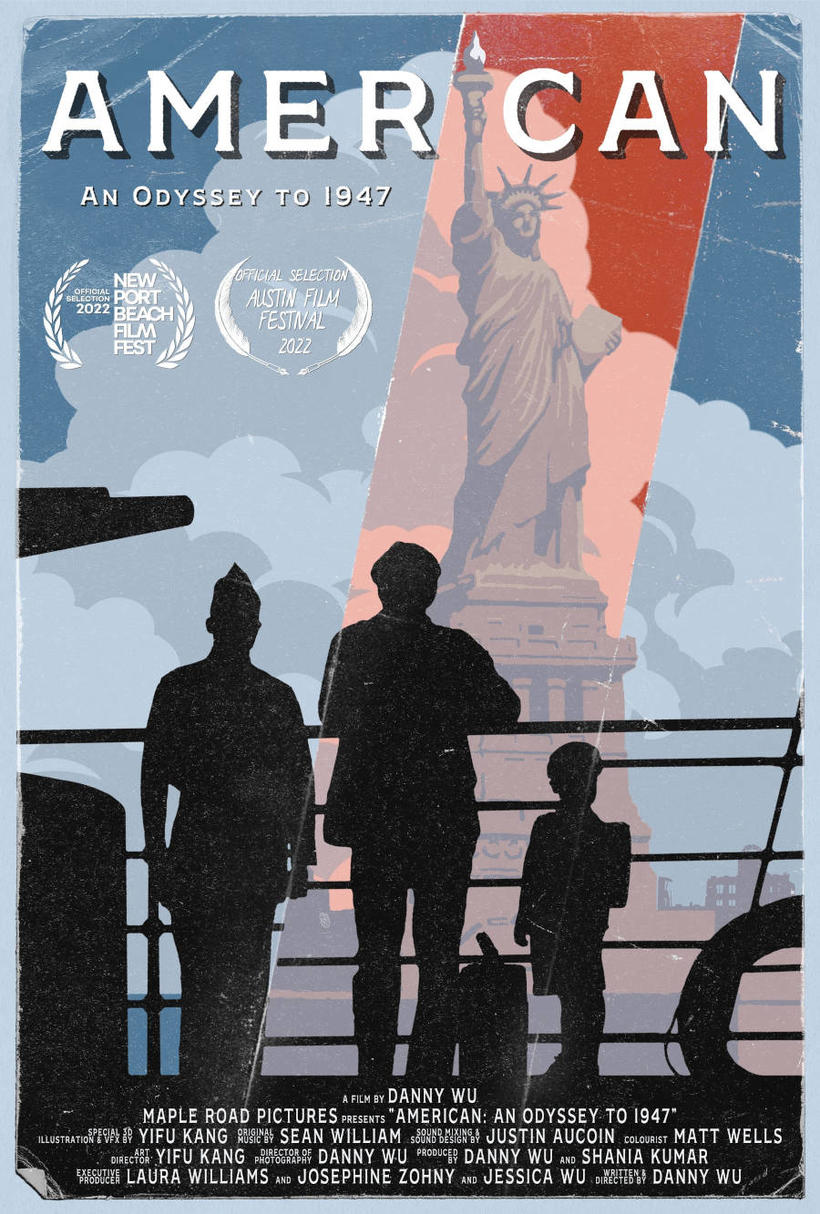 Click here to listen to the interview with Danny Wu.
Click here to listen to the interview with Danny Wu.
In AMERICAN: AN ODYSSEY TO 1947, Danny Wu takes an unexpected turn, jarring at first, but ultimately illuminating. After spending time providing a context for Welles’ career that presents a radically different approach to the usual tale of a wunderkind who, in his own words, started at the top and worked his way down, Wu has created a documentary that is more complex that such glibness, and is, hence, eminently worthy of its subject. It’s not a conventional trope, but Wu is not a conventional filmmaker, and that’s a very, very good thing. Instead of telling the history of that time from the POV of Welles, he has chosen to amplify and annotate that story by including the people contending with the human rights issues Welles chose to champion, almost at the cost of his career. He chose to expand that POV to people who were not rich, not powerful, not influential, and not, incidentally, white.
As Wu, then an aspiring filmmaker, tells it, it all started during the pandemic when he decided to pass the lockdown watching classic films in his native China. Of all that he took in, it was Orson Welles’ CITIZEN KANE that resonated with him the most, and thus was born a near obsession to learn more about the man who made it. This led to him contacting various authorities on Welles, who were only too happy to refer him to historians who painted a portrait of the political milieu in which Welles worked, and which influenced him. Flash forward to the present and AMERICAN: AN ODYSSEY TO 1947, a film that gives us a Welles with whom many are unfamiliar, in a format that, like Welles, breaks the rules of traditional storytelling.
That was how we started our conversation via Zoom on September 1, 2023. We went on to talk about the dynamic animation Wu blended with contemporary and vintage footage, the responsibility of being entrusted with disturbing oral histories, and the ominous similarities of reactionary rhetoric over the decades.
We finished up with Welles’ putative temptation to change careers when politics threatened to push him out of the entertainment industry, and the moment that Wu can’t forget.
Your Thoughts?